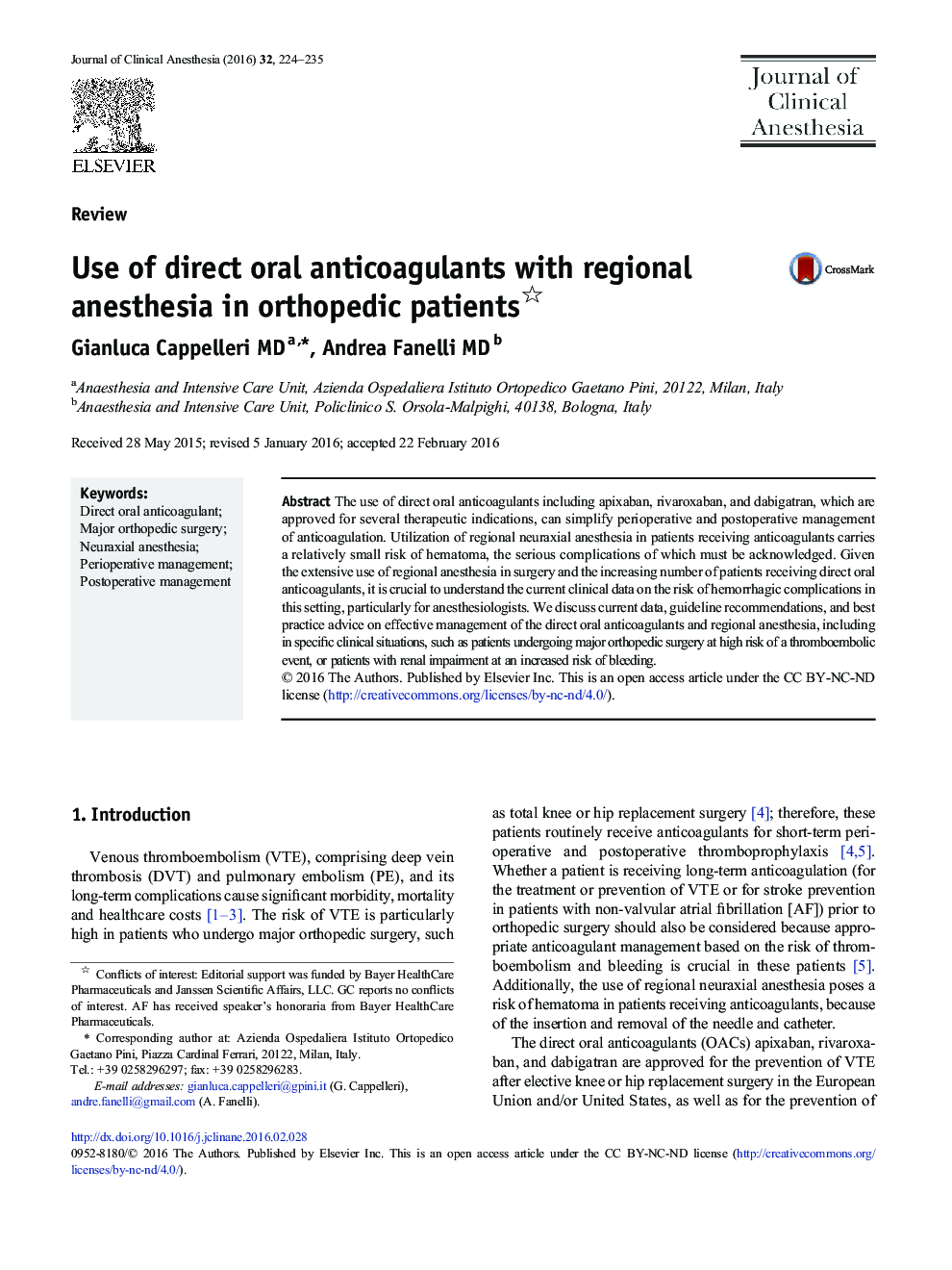| Article ID | Journal | Published Year | Pages | File Type |
|---|---|---|---|---|
| 5884885 | Journal of Clinical Anesthesia | 2016 | 12 Pages |
â¢Regional anesthesia poses a risk of hematoma in patients receiving anticoagulants.â¢No spinal hematoma was reported with rivaroxaban in the phase III RECORD trials.â¢Pharmacokinetics of direct OACs should be considered in periprocedural management.
The use of direct oral anticoagulants including apixaban, rivaroxaban, and dabigatran, which are approved for several therapeutic indications, can simplify perioperative and postoperative management of anticoagulation. Utilization of regional neuraxial anesthesia in patients receiving anticoagulants carries a relatively small risk of hematoma, the serious complications of which must be acknowledged. Given the extensive use of regional anesthesia in surgery and the increasing number of patients receiving direct oral anticoagulants, it is crucial to understand the current clinical data on the risk of hemorrhagic complications in this setting, particularly for anesthesiologists. We discuss current data, guideline recommendations, and best practice advice on effective management of the direct oral anticoagulants and regional anesthesia, including in specific clinical situations, such as patients undergoing major orthopedic surgery at high risk of a thromboembolic event, or patients with renal impairment at an increased risk of bleeding.
